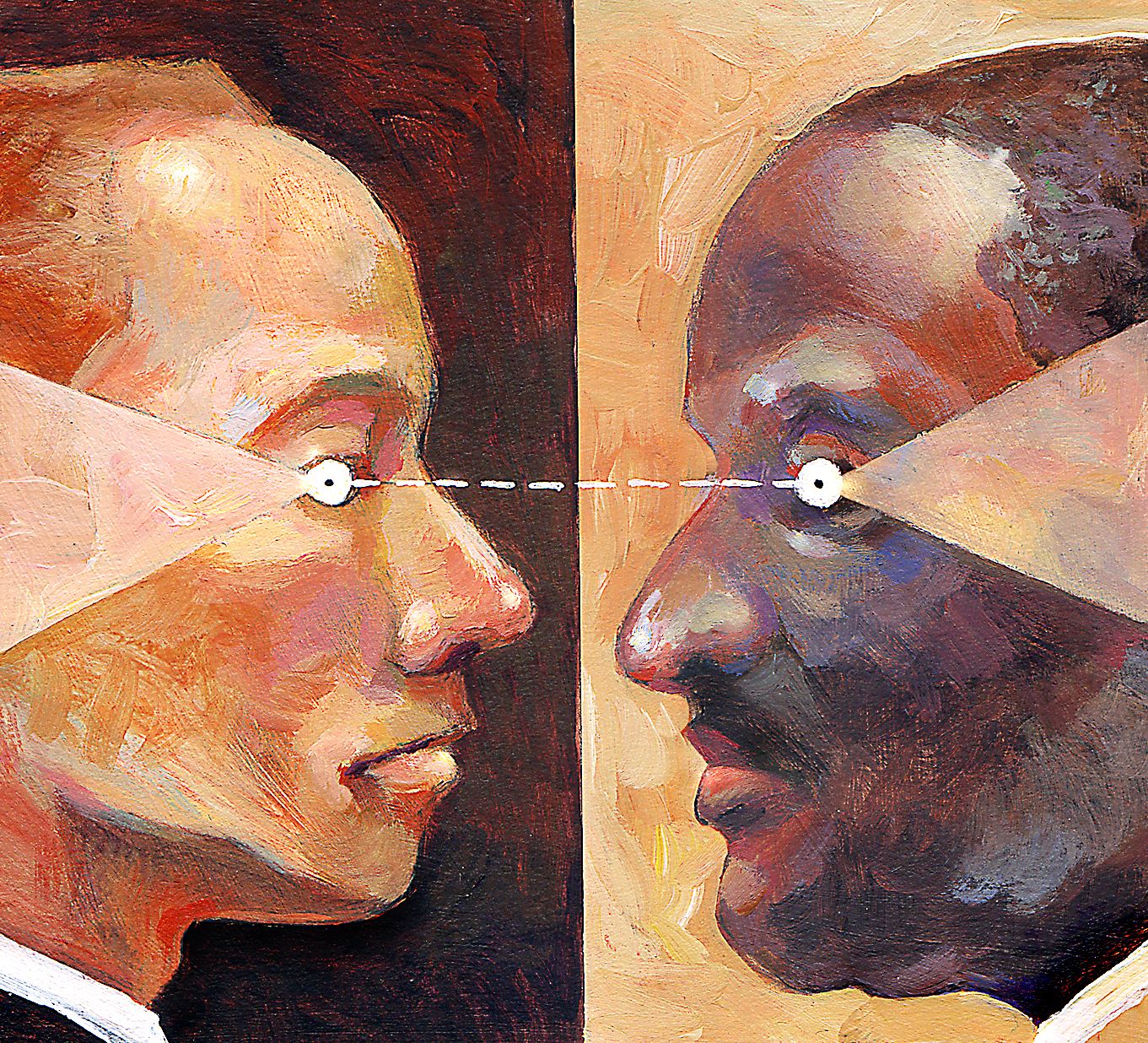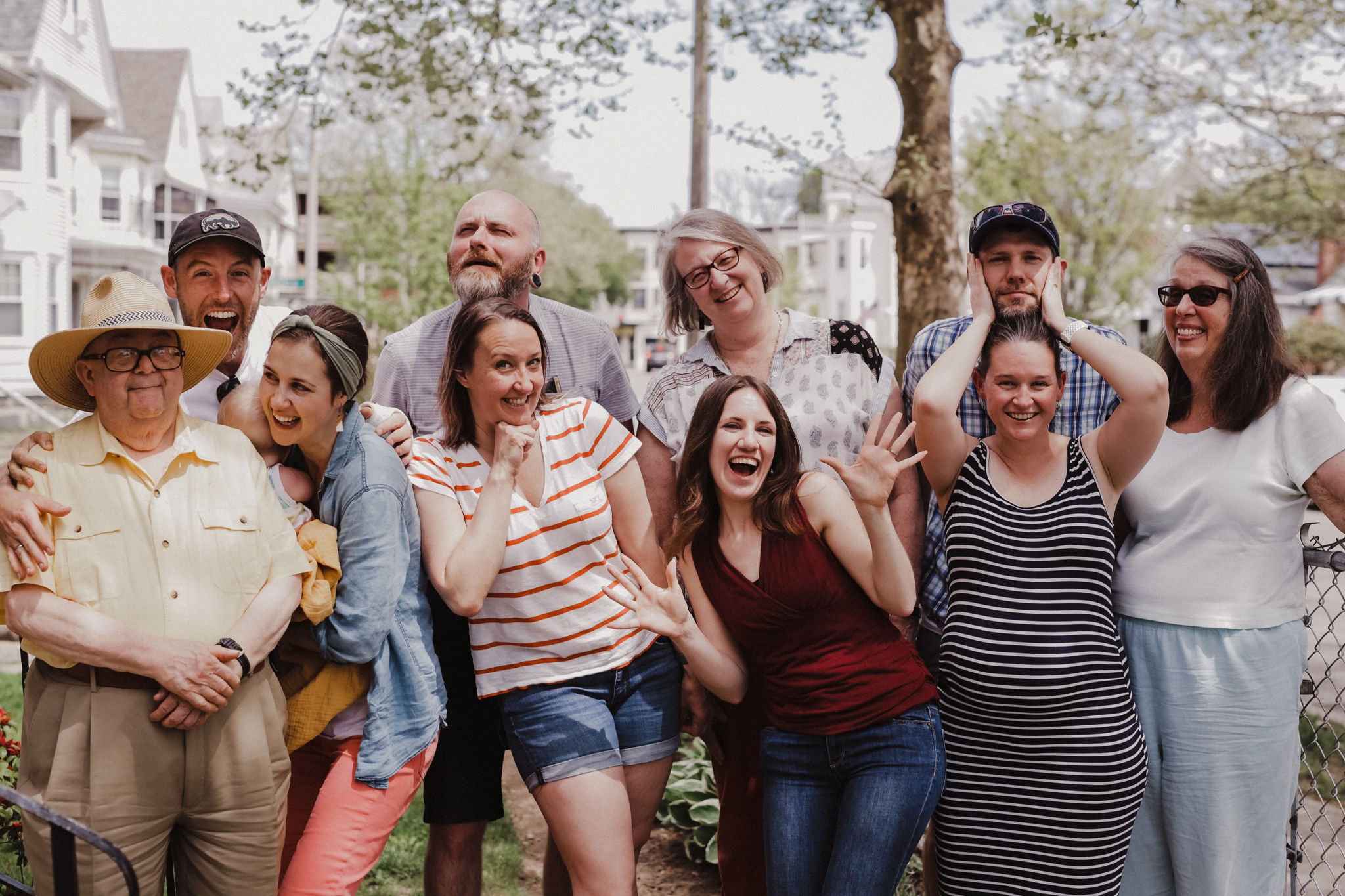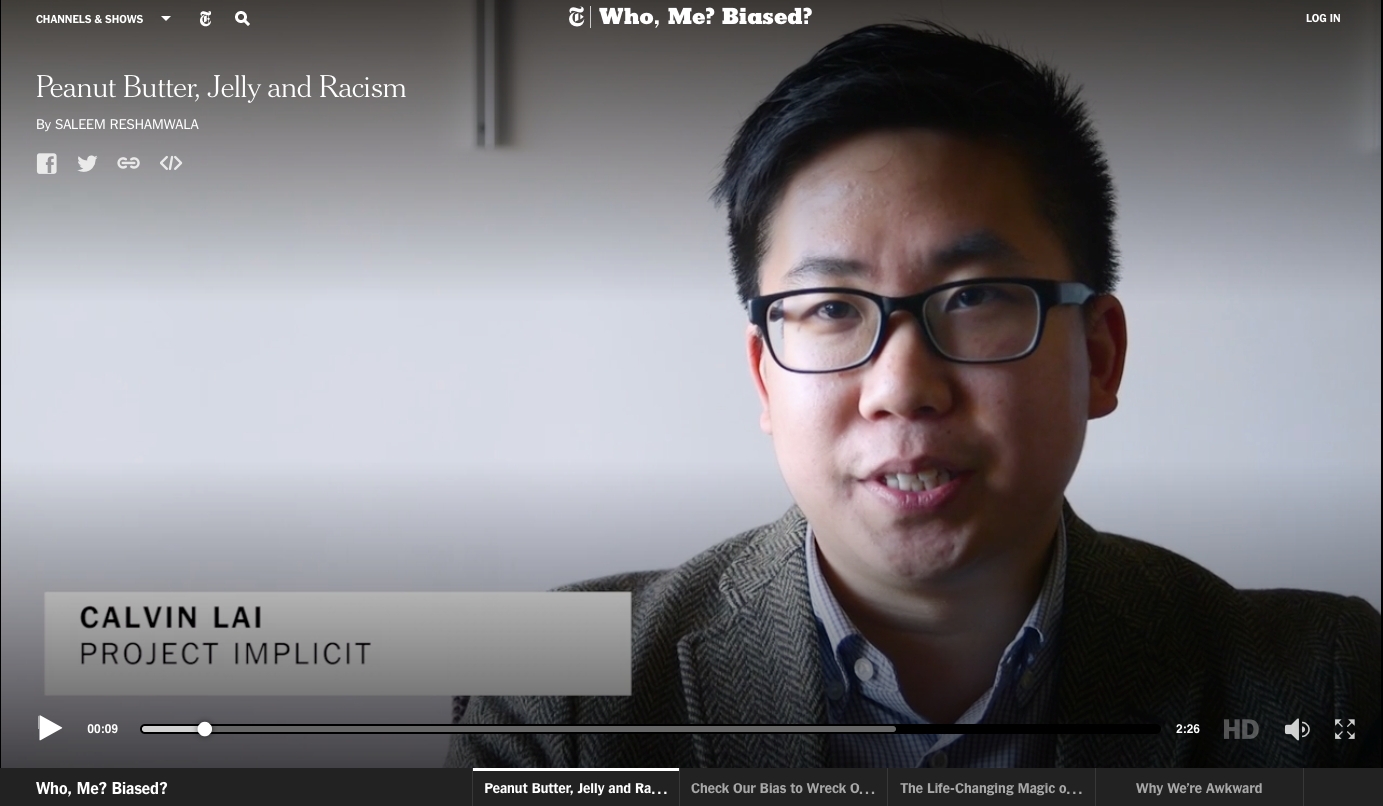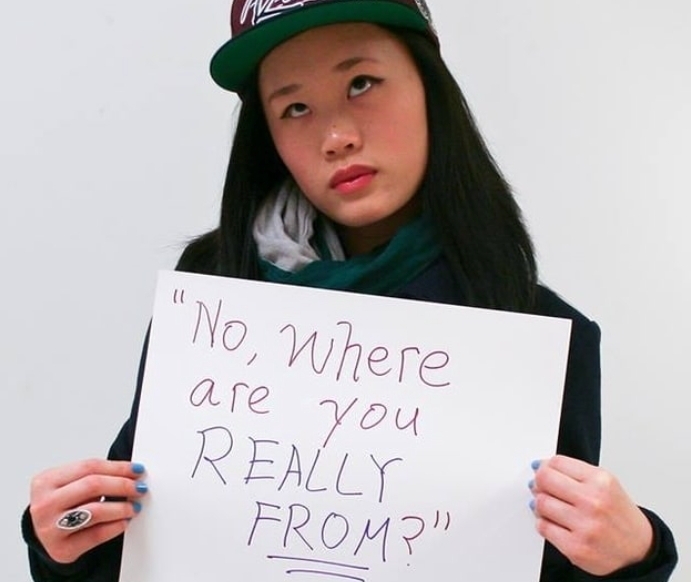
BLOG: APPLIED RESEARCH OF EMMANUEL GOSPEL CENTER
Starter Resources on Race for White Evangelicals
You're White, and you want to engage responsibly and respectfully on race issues. You're an evangelical, and you believe the ministry of reconciliation is part of your calling as a follower of Jesus. Where do you begin? Check out these starter resources recommended by Megan Lietz, a White evangelical committed to helping other White evangelicals on their race journey.
Starter Resources on Race for White Evangelicals
by Megan Lietz
Biblical and Theological Foundations
As with all matters, it’s important that we root our understanding in God’s word. Explore the following resources to better understand the biblical and theological foundation of continuing God’s redemptive work across racial lines.
A Theology of Racial Healing: Though the word “racism” is not used in the Bible, scripture tells the story of God reconciling all people to himself and one another. In this resource, RCCI suggests a Biblically-grounded theology on Christ's redemptive work in the area of race relations.
The Sin of Racism: Though racism is often not named as a sin from the White evangelical pulpit, this article by Tim Keller explains from a biblical perspective how racism is a sin and that it manifests individually and corporately. Though there is disagreement around how to respond to racism, as Christians, we cannot leave this sin unaddressed.
Ethnic Identity: Bringing Your Full Self to God: God gave each one of us ethnic identities that reflect the character and image of God. Explore what the Bible has to say about ethnicity and culture in this self-led Bible study for groups and individuals. It reveals how God sees our ethnic identity and uses it as a part of his redemptive plan.
Race & Racial Hierarchy as the Product of Broken Humanity
While our ethnicities were given to us by God, the social classification of race and the racial hierarchy it serves was a product of a broken humanity. To learn more about how the concept of race developed and was shaped by socio-historical realities, not God’s will, explore the following resources.
Race: The Power of Illusion: This is a three-part PBS documentary that explores the origins of race and how it is not a genetic reality, but a relatively new social construct. Though somewhat dated, the foundation laid here is important to understanding the concept of race. If only one episode is watched, it is recommended to watch Part 2: The Story We Tell. It can be rented on vimeo or is available via Kanopy subscription service, that may be available through a local library.
Our Experience and Identity as White People
In order to engage effectively as white people in issues of race we need to understand how our experiences and perspectives may be different from those of people of color. An important part of this is understanding the racial privilege and power we have as White people because of the color of our skin. For some perspective, check out the following resources.
If you’re looking for a primer on how aspects of our identity like race and gender grant us measures of privilege and how they can impact our lived experience check out Allan Johnson’s book, Privilege, Power, and Difference.
Waking Up White is a memoir by Debby Irving, a white woman who grew up in a predominantly white, wealthy suburb of Boston, about how she came to see and respond to her whiteness. Her journey can offer insights and encouragement for your own.
In, White Awake: An Honest Look at White It Means to Be White, Daniel Hill leads readers through phases of White identity development and offers biblical tools to navigate these seasons of growth. He also offers strong chapters on markers of racial awareness and action steps you can take to progress in your racial awareness journey.
Peggy McIntosh’s article, White Privilege: Unpacking the Invisible Knapsack, is a brief and classic work that gives examples of how white people may experience privilege in their daily life. Simply becoming aware of what privilege looks like and how it can manifest in our lives is a crucial step!
Engaging Issues of Race
As we explore our identity as white people, we need to consider how this shapes our role in engaging issues of race and develop a toolkit for effective action.
Woke Church, by Eric Mason, explores the biblical call to justice that is for all believers and how the Church can regain its prophetic voice and practice to confront racism in the United States.
How to Be Last: A Practical Theology for Privileged People is a blog post by Christena Cleveland that lays a theological foundation for the posture that white people should take as they follow people of color into the work of racial reconciliation.
Soong Chan Rah’s book, Many Colors: Cultural Intelligence for a Changing Church, explores what Christians need to know and do to engage across racial lines in ways that are loving and respectful.
Mark Kramer’s article, Unpacking White Privilege: Feeling Guilty about Racial Injustice Isn’t the Point; the Point Is Doing Something About It complements Peggy’s McIntosh’s article by offering suggestions for how to respond to some of the privileges she identifies.
For additional resources, check out Next Step Resources for White Evangelicals.
Take ACTION
Megan Lietz, M.Div., STM, helps White evangelicals engage respectfully and responsible with issues of race. She is the director of EGC’s Race & Christian Community Initiative.
Stopping Racism Starts Here: 5-Minute Entry Points
Racism in Boston is a big problem. But the road to racial harmony starts with a single step. Check out these recommended videos and special features, each of which take under five minutes to explore.
Stopping Racism Starts Here
Five-Minute Entry Points
by Megan Lietz, EGC Race & Christian Community Initiative
Busy? We get that. Troubled by racism? Good. Here are five resources you can explore in under five minutes about racism in America today.
The current face of racism
Some forms of racism—the legalized segregation in Jim Crow laws, for example—are thankfully behind us. But other forms of systemic racism—such as the mass incarceration of Black men—still create inequitable experiences for people of color to this day.
The Racism is Real video by Brave New Films explores some everyday ways racism creates different experiences for White and Black people today.
How RacisT History Impacts Today
Do you live in a pretty homogeneous neighborhood? Most people in the US do. While we may like to think that where we call home is shaped by our personal preferences or “just the way things are," the racially segregated neighborhoods we live in today are the product of our history.
Play around on PBS’ Race: The Power of Illusion website to learn how housing policies in the 20th century have had a profound impact on today’s neighborhoods and the resources that are available to them.
Implicit Bias
No one likes to think they’re biased. The six brief Who, Me? Biased? videos from the New York Times explore how we have all been unconsciously shaped to have biases. When we recognize this, we can see that even good, well-intentioned people can contribute to inequality. We’re all part of the problem.
The good news is that, with education and exposure, we can all take steps to be less biased. We can take intentional action towards equality.
Color-Blind
One thing that I often hear among White people is that they are “color-blind.” This is intended as a positive comment, implying that they don’t treat people differently based on the color of their skin. While well-intentioned, this lens can be counterproductive. This article by Jon Greenberg explains why.
Microaggressions
Microaggressions are day-to-day things we may say or do that can hurt people of color, sometimes without our intending or realizing it. Check out this Buzzfeed photo journal for some examples of microaggressions.
To explore a broader list of microaggressions, what they can subtly communicate, and why they are problematic, check out this chart:
What do you think is the next step in dismantling racism?
A Word to White Evangelicals: Now is the Time to Engage Issues of Race
We are at a critical moment in the history of our nation—a time not when new problems have arisen, but when old problems have been revealed. The violence against young Black men, the tension that inspired the killings of police officers, the division surrounding a heated election, and the exclusion of the Muslim community are just a few indicators that things are not well. How will we respond in our increasingly diverse nation as racial tensions flare across our land?
PERSPECTIVES
by Megan Lietz, ARC Research Associate
We are at a critical moment in the history of our nation—a time not when new problems have arisen, but when old problems have been revealed. The violence against young Black men, the tension that inspired the killings of police officers, the division surrounding a heated election, and the exclusion of the Muslim community are just a few indicators that things are not well.
How will we respond in our increasingly diverse nation as racial tensions flare across our land?
Like a doctor removes a bandage to reveal a festering wound, these national incidents are exposing deep-seated racial inequities. As a physician exposes a wound to provide treatment, so does exposing these inequities create opportunity for healing. How will we respond to this opportunity? In our choices, we are accountable to the Lord.
The Current Reality
The racial diversity of our nation is increasing. The US Census Bureau projects that by 2043 more than half of the nation will be people of color. We have already seen this shift occur in Boston when we became a “minority majority” city in 2000. Diversity is our future, and the future is indeed here.
With this diversity also comes division. Some division comes from the differences inherent in diverse cultures, such as disparate worldviews or languages. These types of differences are not inherently bad. Other divisions, however, happen because disparities exist between White people and people of color. These disparities have a profound impact on people’s daily lives and foster tension and fear.
Consider the racial disparities in education, health care, and financial well-being in Boston. In 2016, rates of graduation from the Boston Public School System in four years were 13 percentage points lower for Black students, and 15 percentage points lower for Hispanic students, than their White counterparts. In 2015, a 2011 health report found that, compared to White people, Black and Hispanic people in Massachusetts have higher rates of infant mortality, cardiovascular and circulatory system related deaths, and diabetes.
Most notably, in 2015 the median net worth for White families in the Boston area ($247,500) towered over that of Hispanic ($3,020 for Puerto Ricans, $2,700 for other Hispanics) and Black families ($12,000 for “Caribbean Blacks” and $8 for “U.S. Blacks”). Furthermore, there is little hope of this improving without significant change, as these national wealth gaps by race have remained relatively consistent for the last 50 years.
These inequalities shape the future ministry of the Church and invite White evangelicals to the work of racial reconciliation. The invitation is open. Our city isn’t waiting. Will we see the problem before us? Will we respond in a Christ-like way to the hurt and division across our land?
Stepping Up
I believe it is time for White evangelicals to step up in this moment of crisis and walk into the opportunity for conciliation it provides. As a White evangelical myself, I am choosing to step up. Neither my faith nor my conscience allows me to do otherwise.
“These inequalities shape the future ministry of the Church and invite White evangelicals to the work of racial reconciliation.”
I am stepping up by calling other White evangelicals to join me on a journey toward racial reconciliation, and I am committing to walking with them along the way. More specifically, I am developing an initiative at the Emmanuel Gospel Center called Race and Christian Community. I’m designing the initiative to meet White evangelicals where they are and help them take concrete steps to engage in racial issues respectfully and responsibly.
While my primary motivators for action are God’s Word (e.g. Eph. 2:11-14, John 17:20-23, Jer. 29:7) and the grave need, my desire to engage is also personal. There was a time when I was unaware of my race and privilege and culture, when I didn't know what God's Word had to say about the racism and division and discord that sullies our land. At that time, I had fellow Christians come alongside me as I began my own journey towards racial reconciliation.
Born and raised in a predominantly White, rural town, growing up I never imagined myself in multiracial ministry. It was not until I was immersed in communities of color during my college years that I wrestled with my own race and culture. It was not until then that I had considered how racial reconciliation related to my faith.
“I had fellow Christians come alongside me as I began my own journey towards racial reconciliation.”
As I reflect on my involvement in those early days, I recall my desire to help, my good intentions, my uncertainty about what to do, and my remarkable ignorance. At the same time I recall God’s faithfulness. He extended me grace and guided me, through the Spirit and the saints.
In this space I came to discover my culture and racial identity. I began to genuinely appreciate the cultures of others. My view of God expanded, and I began to more fully live out my faith.
Similar to how the Lord used others to lead me on my journey toward racial reconciliation, it is my hope that I can partner with the Lord to guide others who are starting out.
Join the Journey
I invite you to join me in reflecting on the racial tension our nation is experiencing and to consider how you might respond. As the inequities and divisions are coming to light in ways that White evangelicals can no longer deny, we are posed with the question, "What will you do about it?" It is a question that, though powerful, is often brushed off by a barrage of competing priorities: the problem of good people having too many good things to do.
I challenge you to not brush off the question of how you will respond too easily. In our complacency, we hurt both people of color and ourselves. After centuries of being largely disengaged from pursuits of racial equity, now is the time for White evangelicals to begin to change our legacy.
Perhaps the incidents of violence and upheaval that cross our television screens are a means of God’s grace to us. Perhaps God is using these incidents to interrupt our daily routine with moments of clarity—moments that invite us to engage in the reconciling work that is not a partisan issue but is essential to the work Christ did on the cross (Eph. 2:11-21).
“Now is the time for White evangelicals to begin to change our legacy.”
Will you join me, broken and faulty as I am, on a journey toward racial reconciliation? Will you join me, with wounds and fears and insecurities? Will you join me with confidence, not in our ability to bring about reconciliation, but in Christ’s ability to work through those who say, “Yes, Lord, send me”?
Take Action
I invite you to :
Attend an EGC small group conversation for White evangelicals. Saturday, April 1, 10 am - noon, at Emmanuel Gospel Center, 2 San Juan Street, Boston. Discuss obstacles and insights you’ve encountered in your own engagement of race, and brainstorm how EGC could support you to do so more effectively.
Speak into the development of EGC’s Race & Christian Community initiative by connecting with me personally. I value your perspective and want this initiative to be shaped by the voice of the community!
Explore my recommended resource list to begin learning about race and how to engage these issues.
Refer a church, organization, or individual who is already engaging racial reconciliation. I’d like to connect with them, learn from them, and explore how what we do at EGC can complement, not duplicate, their efforts.
Offer financial support to EGC’s Race and Christian Community initiative.
If you are willing to join me, I welcome you to the journey. May we walk it together, bearing the good news of Jesus' reconciling power and allowing him to use us as his hands and feet.
Keywords
- #ChurchToo
- 365 Campaign
- ARC Highlights
- ARC Services
- AbNet
- Abolition Network
- Action Guides
- Administration
- Adoption
- Aggressive Procedures
- Andrew Tsou
- Annual Report
- Anti-Gun
- Anti-racism education
- Applied Research
- Applied Research and Consulting
- Ayn DuVoisin
- Balance
- Battered Women
- Berlin
- Bianca Duemling
- Bias
- Biblical Leadership
- Biblical leadership
- Black Church
- Black Church Vitality Project
- Book Recommendations
- Book Reviews
- Book reviews
- Books
- Boston
- Boston 2030
- Boston Church Directory
- Boston Churches
- Boston Education Collaborative
- Boston General
- Boston Globe
- Boston History
- Boston Islamic Center
- Boston Neighborhoods
- Boston Public Schools
- Boston-Berlin
- Brainstorming
- Brazil
- Brazilian
- COVID-19
- CUME
- Cambodian
- Cambodian Church
- Cambridge












































